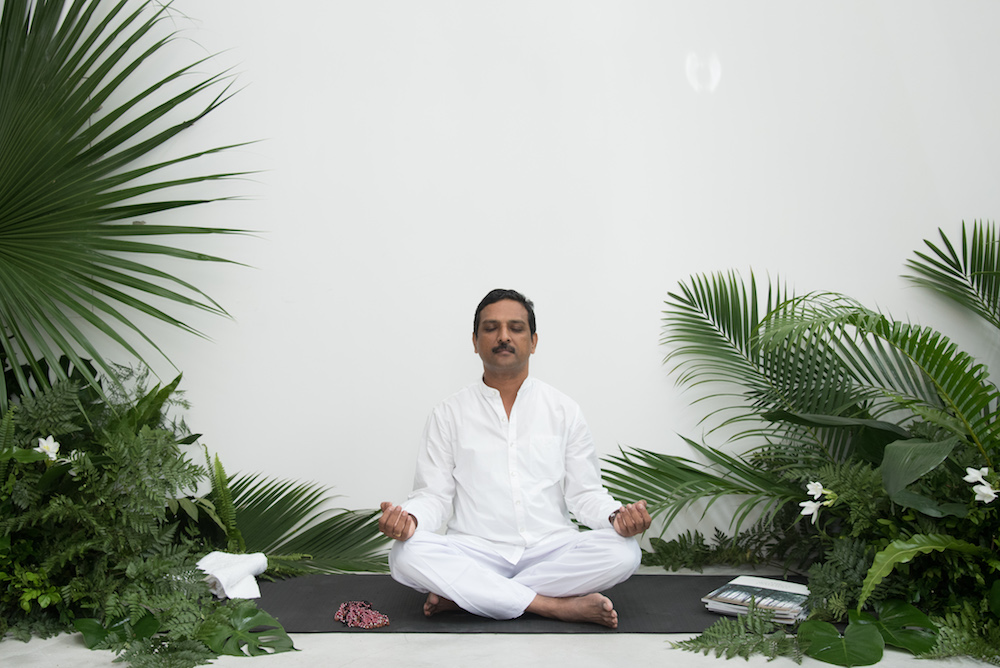
Dating back thousands of years, Ayurveda is a system of traditional medicine from India all based around finding balance between your mind and your body. From turmeric lattes to saffron-infused moisturisers and masks, this ancient form of healing has become one of the most talked-about wellness trends. However, this age-old practice goes beyond skip deep. Working at the root level, Ayurveda treats the cause not just the symptoms – even with something as simple as restless sleep or chronic headaches.
“The smallest changes can provide huge transformations. Through Ayurveda, we find out where the imbalance is happening. For headaches, it might be that your air element is in excess because you’re highly stressed, it could be related to your fire element, which is related to your digestive and metabolic state, or the fluid retention in your body which can affect your sinuses,” explains COMO Shambhala Estate’s resident Ayurvedic consultant, Dr. Prasanth.

A pioneer for the best luxury wellness treatments and programmes, COMO Hotels and Resorts offer personalised holistic wellbeing to all of their guests – be it through dining with their healthy and nutritious Como Shambhala Cuisine available at all of their restaurants and via in-room dining, at their Como Shambhala Spa or through their daily rotation of complimentary activities such as yoga or meditation.

Ayurveda is all about a personalised approach to wellbeing, which is why a consultation is usually vital to determine where you have imbalances and what elements of your lifestyle are working at an excess or deficiency. This can include an analysis of your pulse, tongue (a reflection of how healthy your digestive system is), skin, hair, face and nails.
Despite this, there are some basic yet highly-effective Ayurvedic practices which you can incorporate into your daily routine that’ll have you glowing from the inside out. “According to Ayurveda, the digestive system is the mother to all our other systems. If you want to make good changes, the place to start is with your diet,” shares Dr. Prasanth. Ahead, are the four Ayurvedic tips he lives by:

1. Do not drink water or coffee while eating
“If you have the habit of drinking water or coffee with your food, please avoid it. If you easily get bloated, suffer from heartburn after eating, have reflux or bowel irregularities, then this is particularly important. Instead, drink water 30 minutes before or after your meal. If you eat food and drink water at the same time, the water reaches your stomach faster than your food because it’s in a liquid form. By the time the food reaches your stomach, the water has already diluted your digestive acids. Therefore, the burning of your food won’t be as effective. If this is the only thing you take away, you’ll already see some pretty substantial differences for the better.”
2. Only go to bed three hours after eating
“After you eat dinner, there should be three hours between the moment you lie down or go to bed in order to keep your digestive health active as it usually takes three hours for the digestion process to be completed. This can also improve the quality of your sleep because our body and brain works much like a computer. If you have a programme running on your computer and you try to shut down, you have to force it to shut down unless you close the programme. In the same way, when you’re trying to shut down your computer, there should not be any active programmes running in your body.”
3. Try to eat and drink things that are close to your body temperature
“What you want to avoid is artificially cold food and beverages such as refrigerated water or frozen food. According to Ayurveda philosophy, food and beverage can only start digesting if the food is close to your body temperature. So if you eat something very close to your body temperature, the digestion can start pretty much right away. Otherwise a lot of effort goes into heating the food before digestion can even begin.”
4. Stop eating the moment you stop feeling hungry
“I’m not asking you to starve but you should always watch your hunger level so that you’re more mindful when you eat. So focus on your eating, enjoy the food and when you feel that your hunger is going to be satisfied, stop eating.”





